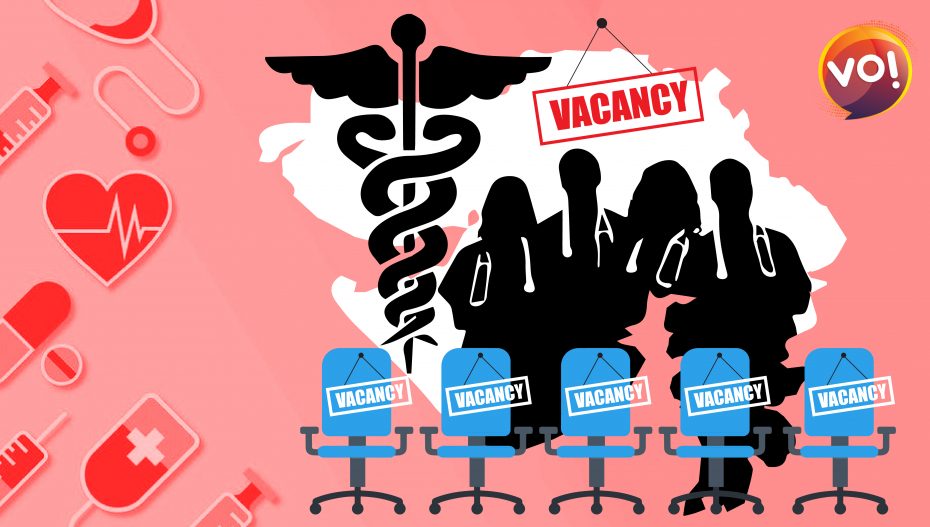Twenty-six-year-old Ramesh is not alone in waiting his turn at the OPD at Government Civil Hospital, Ahmedabad. Weakened by a persistent fever, he is drained from waiting for over two hours in the long queue. The auto-rickshaw driver has come all the way from Waddaj. The nearly three-hour wait for a brief 10 minutes for the doctor will cost him a substantial amount of daily earnings.
Across the state, there are six government medical colleges with attached civil hospitals. Medical college professors are primarily academics who are employed to teach aspiring doctors. They cannot double up as doctors at the hospitals. However, the paucity in the numbers of professors and resident medical doctors at the hospitals has shaken the health infra of the state.
In Gujarat, 3,807 posts have been sanctioned for six medical colleges, of which 1,454 posts are lying vacant. Of the posts filled, 271 are contractual while 180 have been appointed as regular employees with a fixed salary. Many posts have been vacant for years and these include posts ranging from HoD to class 3 staff. It is the common man like Ramesh who has to bear the brunt of this lapse. An overburdened medical system inevitably results in longer hours of wait and a hurried consultation at the doctor’s chamber.

In Surat, the health centre for south Gujarat, nearly 76 posts from Class I 36 from Class II and 74 from Class 3 are lying vacant. At PDU Medical College, Rajkot, 389 vacancies are awaiting appointments from the government against 669 posts. In the filled posts, 55 have been filled on a contract basis and 29 with a fixed salary.

The same is the story of M.P. Shah Medical College, Jamnagar. There are only 146 labourers in front of 243 professors, of which, 18 are contract-based. Nearly 44 posts lie vacant in Class II and 105 in Class III respectively.

A resident doctor on the conditions of anonymity stated: “We have to bear the brunt of the lack of faculty and staff. We have class, and OPD and then we are also expected to overwork and be underpaid. That is why the best students leave government hospitals and opt for private ones.”
When asked to explain the lack of appointments, especially in a country where unemployment is on the rise, Dr Kalpana Desai, a member, of Gujarat Medical Council, shared: “Time and again, we have conveyed to the government that vacant posts have to be filled in. Little has been done. Low salaries and service anomalies must be reviewed because often willing candidates back out because of these two factors.”
For his part, the Leader of Opposition in the Assembly, Sukhram Rathwa censured the BJP’s callousness. “The Gujarat government is celebrating 20 years of achievement. We look at it as two decades of failure and deterioration of the health system. In some ways, this is the BJP’s game plan to drive business in private hospitals. We supported the doctors’ strike. But the administration has turned a blind eye to woes of the common man,” he stated.
Also Read: Gujarat Budget 2022-23 Has Provision For 5 New Medical Colleges – Rushikesh Patel










